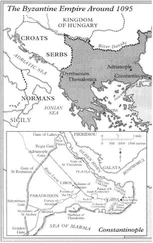Tom Harper - Siege of Heaven
Здесь есть возможность читать онлайн «Tom Harper - Siege of Heaven» весь текст электронной книги совершенно бесплатно (целиком полную версию без сокращений). В некоторых случаях можно слушать аудио, скачать через торрент в формате fb2 и присутствует краткое содержание. Жанр: Исторический детектив, на английском языке. Описание произведения, (предисловие) а так же отзывы посетителей доступны на портале библиотеки ЛибКат.
- Название:Siege of Heaven
- Автор:
- Жанр:
- Год:неизвестен
- ISBN:нет данных
- Рейтинг книги:5 / 5. Голосов: 1
-
Избранное:Добавить в избранное
- Отзывы:
-
Ваша оценка:
- 100
- 1
- 2
- 3
- 4
- 5
Siege of Heaven: краткое содержание, описание и аннотация
Предлагаем к чтению аннотацию, описание, краткое содержание или предисловие (зависит от того, что написал сам автор книги «Siege of Heaven»). Если вы не нашли необходимую информацию о книге — напишите в комментариях, мы постараемся отыскать её.
Siege of Heaven — читать онлайн бесплатно полную книгу (весь текст) целиком
Ниже представлен текст книги, разбитый по страницам. Система сохранения места последней прочитанной страницы, позволяет с удобством читать онлайн бесплатно книгу «Siege of Heaven», без необходимости каждый раз заново искать на чём Вы остановились. Поставьте закладку, и сможете в любой момент перейти на страницу, на которой закончили чтение.
Интервал:
Закладка:
It reminded me of a funeral, of that procession I had seen in Antioch half a lifetime ago when they laid Bishop Adhemar in the ground. Barefoot priests led the way with veiled crosses, and acolytes carried long candles beside them. Behind came Peter’s prophet John, his camelskin coat covered with a black gown that had been artfully torn in many places; after him a dozen men I did not recognise, and then the mass of pilgrims. Not just pilgrims, I saw — many knights and soldiers walked among them too. Candlelight flickered on their faces, windows in the darkness revealing their grief: cheeks smudged with soot, eyes shining with tears, hearts stricken with disbelief. They carried a bier, and for a shocked moment I thought it must be Peter Bartholomew’s corpse. Then it came past me, and I saw it was only an effigy of Christ’s tomb, with a high crucifix towering above it. They had garlanded the crucifix with flowers — poppies, narcissi, dandelions and roses; the flowers shivered and swayed as the bier moved, so that with the colours of their petals it appeared that the cross was wreathed in flame.
‘ The dead shall live ,’ they sang, ‘ their corpses shall rise. Awake, you who dwell in dust, and sing with joy .’
Peter Bartholomew was not dead, but he barely lived. According to rumour he lay in his tent on the hill, a burnedout ember of a man, and awaited God’s judgement. That was not enough for Anna, who insisted on going to him to see if she could ease his suffering. ‘He was my patient once before,’ she reminded me. But the crowds about his tent were so great we could not get within two hundred paces of it — and anyway, we were told, he had refused all salves and ointments, saying that the Lord alone would decide his fate.
‘If he spurns medicines, he has made Christ’s decision for Him,’ Anna complained. But every hour on Easter Saturday the crowds around his tent grew, so many that the pilgrim camp could barely contain them. The surrounding tents were stripped back to make room, first from the top of the hill, then ever further down the slopes, until Peter’s tent stood in solitude on the bald summit.
Unexpectedly — for he had not even attended the ordeal — it was Nikephoros who showed the greatest interest in Peter’s fate. He summoned me to his quarters on the Saturday morning and questioned me at length; he even asked what Anna thought, which was extraordinary, for until then I had not realised he knew she existed.
‘She is certain that without a doctor’s attention he will die of his wounds?’ he pressed me.
‘Even if he did accept it he would hardly have much hope. Any other man would have died already of those wounds. That he has survived until now is. . fortunate.’ I could not bring myself to say miraculous .
Nikephoros seemed satisfied. ‘The sooner the better.’
‘But if Peter Bartholomew dies, and the lance is discredited, Raymond will be much weakened.’
Nikephoros dripped wax on the dispatch he had just written. ‘Raymond is weakened anyway. He built his house on shifting sands, and now they have swallowed him. No doubt he will salvage what he can by claiming that the peasant in fact survived the ordeal, but few will believe him once they see Peter Bartholomew laid out in his tomb.’
‘But then-’
‘Peter Bartholomew’s death will weaken Raymond. As he is the only barbarian who even pretends to support the emperor, that would be a setback. But if Peter Bartholomew survives, if tomorrow he appears to his peasant congregation resurrected. .’ Nikephoros pressed his seal into the soft wax. ‘What do you think will happen then?’
I rose early on the Sabbath just as the day was dawning. Helena wanted some herbs for the Easter lamb, and I had said I would find them. I slipped out of our tent alone and walked quickly towards the mountain. I told myself that I remembered seeing some wild rosemary growing in the forest there, though I might not have remembered it so well if the path had not led close to the pilgrim camp. Though I had heard Anna’s diagnosis, a deep and unanswerable part of me still whispered that the Lord made all things possible. I scanned the hilltop, seeking a sign: thousands of pilgrims still kept their vigil on its slopes, many of them prostrate with prayer or exhaustion, and the faint melodies of hymns drifted down to me in the dawn stillness. But the songs were scattered and tentative, their message nothing more than fading hope.
Disappointed, and disgusted with myself for it, I turned away towards the place where I thought I had seen the rosemary. I was not alone. As Easter dawned without its Messiah, men and women had begun to trickle down from the hill and return to their camps. I tried not to look at them — the disappointment in their faces was too painful to see — but one caught my eye. Despite the warmth of the April morning he wore a cloak that hung to his ankles, its hood raised to cover his face. As I watched, his course seemed to drift imperceptibly towards the forest on the mountain ridge to the north-east, gradually taking him away from the army.
Perhaps he was no more than a pilgrim looking to relieve himself in private; perhaps he wanted to pick herbs too. But there was something surreptitious about him, something deliberately evasive that I had seen before in men who had had good reason to avoid discovery — the same reason, most often, as I had had for finding them. And so, more from habit than anything else, I followed him into the forest.
It was not difficult. The trees were thick enough that he could not see me, and my footsteps were silent on the thick carpet of pine needles. Thin columns of sunlight filtered through the foliage; if I had not been so intent on my pursuit, I might have paused to marvel at the simple beauty of a spring morning. But I pressed on, pausing twice when the fluttering of birds in the branches above temporarily frightened me — and a third time when I came to a bend in the path and heard voices ahead.
‘He hasn’t recovered?’ As the voice spoke, I heard the abrupt bite of a shovel breaking earth, and then the rasp of iron on loose stone.
‘There’ll be no resurrection for him.’ The shovel dug into the stony ground again, harder this time. ‘If I could have tied a rope on him and dangled him in front of the crowds like a puppet, I would have. That would have been enough. But he won’t get up from that bed again, except to fall into his grave.’
The second voice sounded familiar, though I could not place it. I crouched low and moved off the path into the undergrowth, trying to find a place to see. Every branch I touched or leaf I brushed caused a stab of fear, but the sounds of digging drowned out any noise I made. I came closer, and eventually found a place where if I lay on my belly I could just see through the gap beneath a squat bush. I had brought a knife with me to cut the herbs; I pulled it from my belt, and watched.
Two men stood in the clearing with their backs to me, one in a brown tunic and the other in blue. They had already dug out a sizeable pile of earth. As I watched, one of them knelt and reached into the hole with both hands, pulling out a bulging sackcloth bag. Its contents shifted and clinked as he set it on the ground and brushed the dirt from it.
‘Where will you go?’ asked the man in the blue. He drew a knife and sliced through the cords that tied the neck of the bag.
‘North to Tortosa. I can find a boat there to take me home. I’ve had enough of this adventure.’
The man in the brown tunic pulled out an empty sack he had kept looped over his belt. He held it open while the other shared out the contents of the buried bag. I heard the trickle of a stream of a coins.
The man wrapped a rope around the neck of the bag and tied it fast. ‘It may not be eternal life, but at least we have some inheritance from Peter Bartholomew.’
Читать дальшеИнтервал:
Закладка:
Похожие книги на «Siege of Heaven»
Представляем Вашему вниманию похожие книги на «Siege of Heaven» списком для выбора. Мы отобрали схожую по названию и смыслу литературу в надежде предоставить читателям больше вариантов отыскать новые, интересные, ещё непрочитанные произведения.
Обсуждение, отзывы о книге «Siege of Heaven» и просто собственные мнения читателей. Оставьте ваши комментарии, напишите, что Вы думаете о произведении, его смысле или главных героях. Укажите что конкретно понравилось, а что нет, и почему Вы так считаете.










